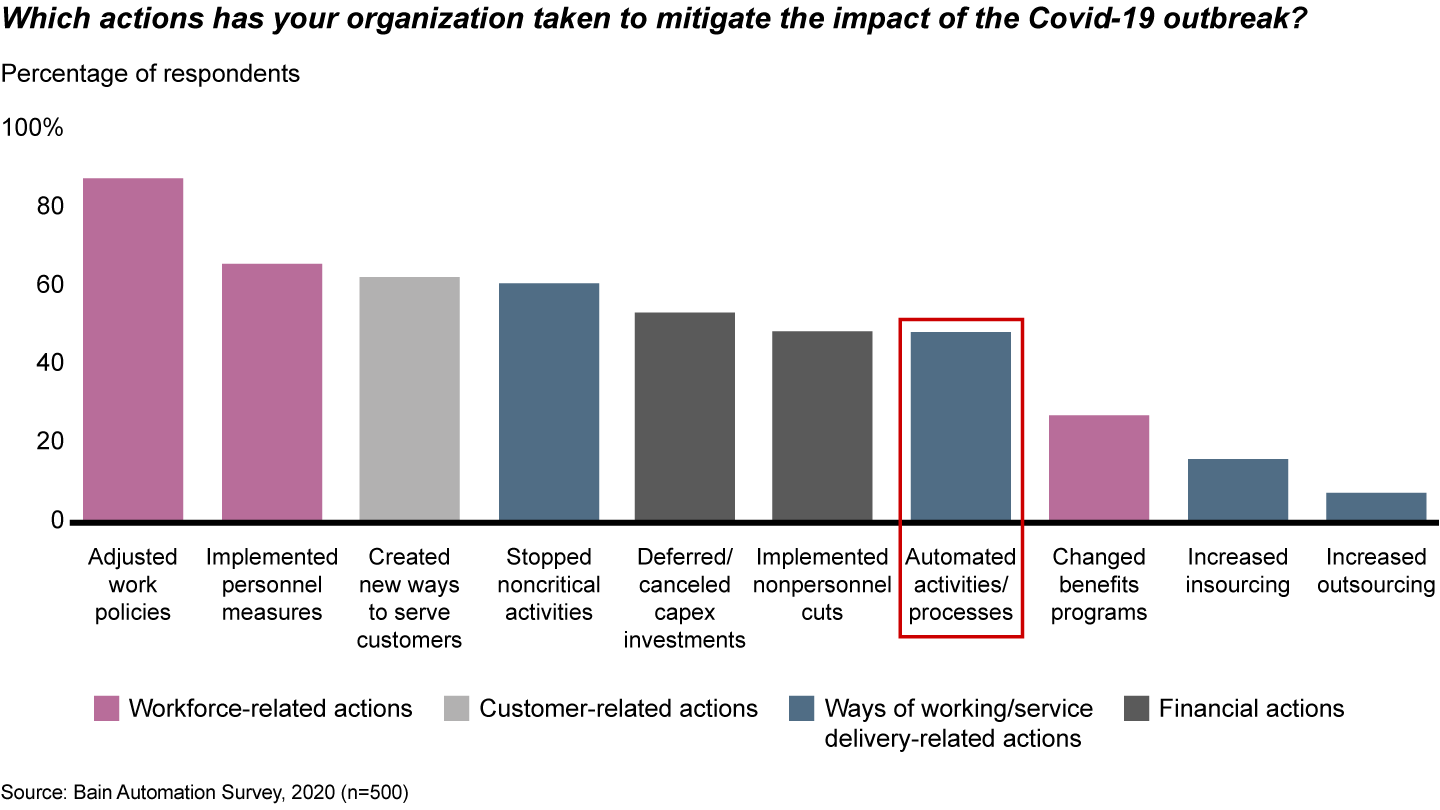Report

This article is Chapter 9 of Bain’s global Technology Report 2020. Explore the contents of the report here or download the PDF to read the full report.
The competitive battlegrounds in technology create plenty of opportunities for the sector’s companies. But capitalizing on those opportunities requires strong operational capabilities.
Leading companies start with cost-effectiveness. This is true both for mature companies that need to improve efficiency to protect and expand their margins, as well as high-growth technology companies trying to free up funding to supercharge their growth. The best companies have a disciplined process to continuously evaluate costs and find areas to boost efficiency. These aren’t just cookie-cutter cost targets. Their goals are guided by rigorous benchmarking and unlocked by new ways of operating.
This year, the Covid-19 pandemic has brought resiliency to the fore for many companies, alongside efficiency. The importance of having a resilient and reliable supply chain has grown since the trade war between the US and China accelerated over the past few years; Covid-19 has only increased the urgency of transforming supply chains.
Automation is another capability that has risen near the top of many executives’ agenda this year. When we surveyed leaders across all industries over the summer, around half of respondents said their organization had increased its automation activities as a result of the pandemic (see Figure 1). Many companies’ automation capabilities have also evolved from mostly basic scripting five years ago to more advanced, sophisticated technologies.

Effective go-to-market approaches and strategic mergers and acquisitions will also play crucial roles in positioning technology companies to win their battlegrounds. The pandemic has accelerated companies’ use of virtual sales, new channels and digital tools to market their products. In many cases, they’ve seen better results and aren’t going back to old methods.
On the M&A side, scope deals are dominating the landscape. That’s partly because there are fewer opportunities for scale acquisitions. But the shift to scope deals is also strategic: Technology companies are looking to add capabilities and move into faster-growing segments in these turbulent times.
